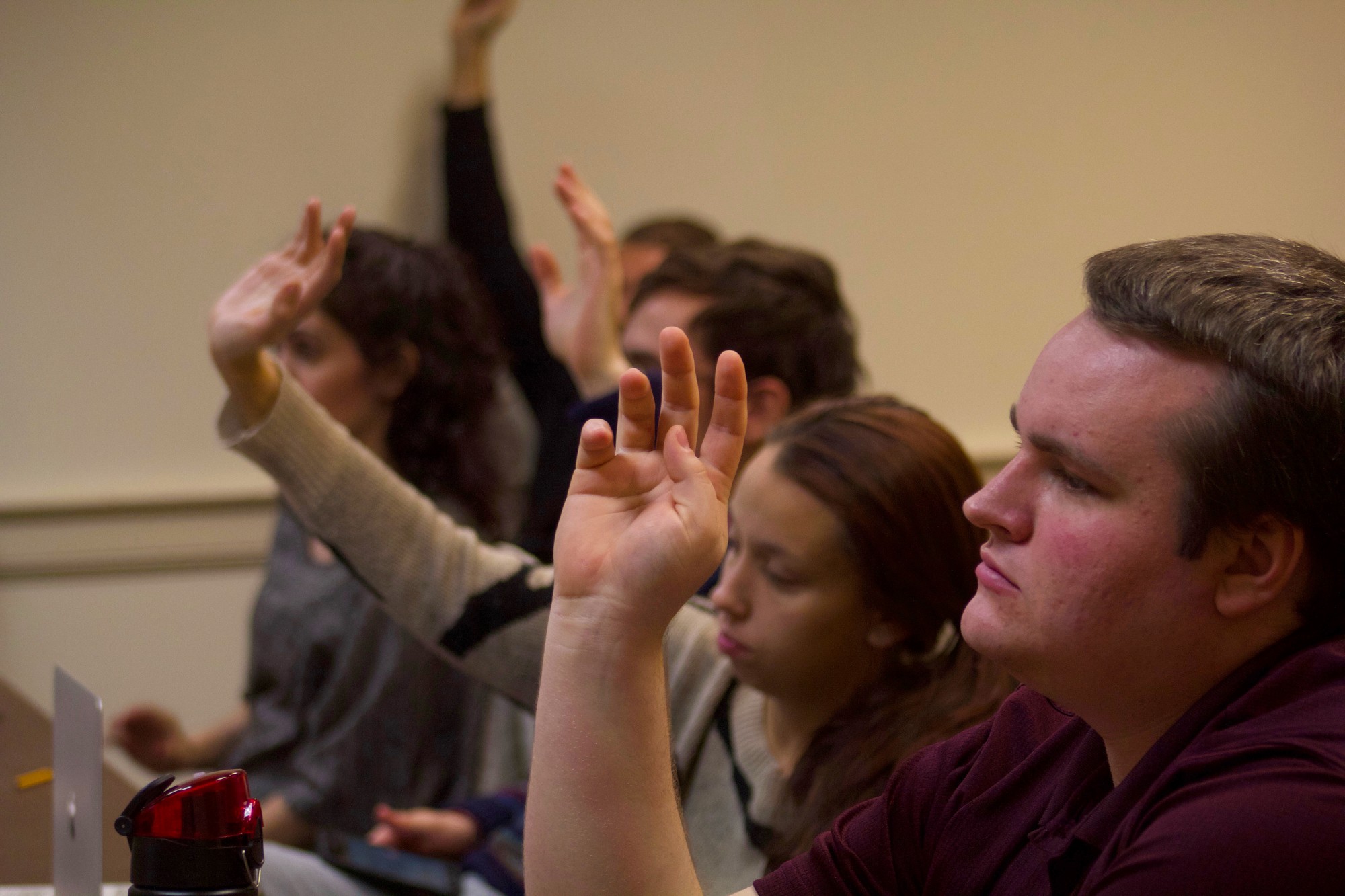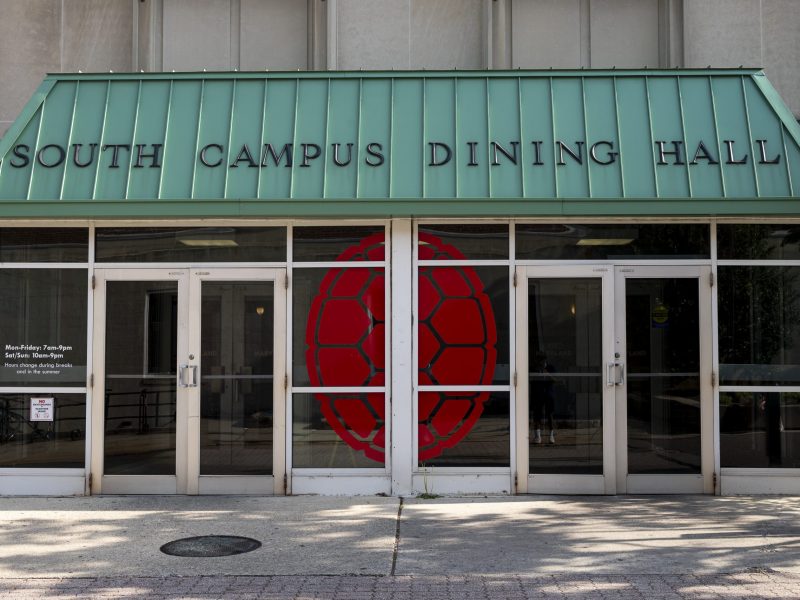The table along the back wall of the Nyumburu Cultural Center basement is usually crowded with dozens of unclaimed name plates at the end of monthly GSG meetings at the University of Maryland. Just over half of representatives attend regularly, Legislative Affairs Vice President Adria Schwarber said.
There are 45 actively serving representatives in the Graduate Student Government, but Schwarber said an average of 24 show up to each meeting.
GSG bylaws state that a representative may be dismissed if they have either three consecutive unexcused absences from regularly scheduled meetings or miss more than half of the meetings in a legislative year. Representatives normally resign before they are removed, Schwarber said, adding that four resigned in February because the meetings conflicted with their work schedules.
[Read more: Graduate Student Government will add a diversity and inclusion vice president]
“Attendance is an issue, but I don’t think it’s for lack of caring by the representatives,” she said. “It’s challenging to balance wanting to do your best in your job, but also filling your obligations in your education or work.”
Neurosciences and cognitive science representative Felix Bartsch said on top of serving on the GSG, he does a “ton of research” for his department through his position as a research assistant. He had to miss the first assembly meeting this semester to attend a lab meeting at the National Institutes of Health.
Friday’s meeting was especially low on attendance — 18 representatives showed up initially, and members walked in and out as the meeting proceeded. The group failed to meet a quorum of 16 representatives with half an hour left in the meeting and was unable to vote on a bill that would have created a government affairs vice president.
The GSG changed its traditional meeting time on the first Friday of every month from 1 p.m. to 3 p.m., moving it to 2:30 p.m. to 4:30 p.m. to better accommodate representatives’ schedules, but Schwarber said students had a hard time finding proxies to fill in for them at this time slot. A proxy must be a currently enrolled graduate student who is in the same program as the representative they’re replacing, and if representatives designate a proxy for a meeting, it’s considered an excused absence.
This new meeting time also posed problems for computer science representative Yehuda Katz. He said he had to miss a few meetings this semester to observe the Jewish Sabbath, which starts at sundown on Fridays. He had to miss Friday’s meeting, which was scheduled on Passover.
Schwarber said the GSG will return to its original meeting time next semester.
History department representative Guy Aldridge said that while attendance typically dips when representatives have to take exams, the unique stress of this year may play an additional role in diminishing participation. Last semester, the GSG launched an impeachment investigation into its former president, Stephanie Cork for potential misuse of the group’s funds.
“Ideally, the most stressful thing [the GSG] should have to worry about is where to have happy hour or when to have certain concerts,” Aldridge said. “The stakes are higher and I think people may be burned out.”
[Read more: Less than half of student senators show up to most University Senate meetings]
Bartsch said that while the GSG seems to be getting back on track, meetings at the beginning of this semester involved a lot of “house cleaning” to resolve issues left by previous administration. Bartsch said he didn’t feel these early meetings were very productive.
“A lot of these things don’t really help my constituents directly,” he said, adding that he tries to come to at least portions of meetings because he feels like “we still need people to show up.”
But Public Relations Vice President Katie Brown said that while she could see how last semester could dissuade people from joining the group, she has observed a “change in tone” among currently serving representatives.
“People really care,” Brown said. “People see we need to really pay attention to what’s going on, and we need to protect these funds to benefit grad students as much as we can.”



